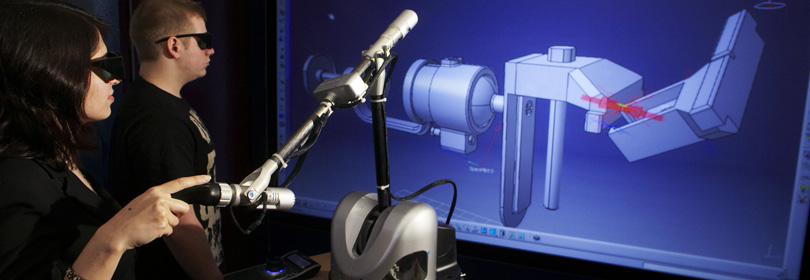
The members of the Collaborative and Integrated Design team have historically pursued research activities focused on developing methods and tools for collaborative design that integrate knowledge and stakeholders. Thematic developments have led the team to question the foundations of its work, and the interaction dimension has emerged as a common denominator of its activities. The study of interactions, within this collaborative framework, encompasses human-human interactions, both mediated and non-mediated, and human-machine interactions, taking into account recent developments in Artificial Intelligence and generative agents. The team leverages design science, and more specifically research on collaborative methods and tools, to provide modeling, methods, and tools to understand and support the changes underway in society and businesses toward reducing the environmental impacts of industry and the reappropriation of technologies by citizens. The integration of technologies, whether digital or not, is therefore accompanied by a critical analysis of their performance with regard to other criteria such as those relating to environmental or societal impacts.
We welcome doctoral students from engineering sciences, cognitive sciences, management sciences, or computer science, depending on the collaborative projects we develop with our partners.
We aim to contribute to design sciences: engineering sciences (mechanical engineering, industrial engineering) in close connection with the humanities and social sciences (organizational sociology, management, cognitive ergonomics) and information and communication sciences.The members of the Collaborative and Integrated Design team have historically engaged in research activities aimed at developing methods and tools for collaborative design that integrates knowledge and stakeholders. Recent thematic developments have prompted the team to rethink the foundations of its work, with interaction emerging as a common thread throughout its activities.
The study of interactions, within this collaborative framework, includes both human-human interactions—whether mediated or non-mediated—and human-machine interactions, particularly in light of recent advancements in artificial intelligence and generative agents. The team utilizes design science, specifically research on collaborative methods and tools, to provide modeling, methods, and tools that help understand and support the ongoing changes in society and business. This work aims to reduce the environmental impacts of industry and to promote the reappropriation of technologies by citizens.
As a result, the integration of technologies—whether digital or otherwise—is accompanied by a critical analysis of their performance, taking into account various criteria, especially those related to environmental and societal impacts.
We invite doctoral students from fields such as engineering sciences, cognitive sciences, management sciences, or computer science to join us, depending on the collaborative projects we develop with our partners.
Our goal is to contribute to design sciences, particularly in engineering fields (such as mechanical and industrial engineering), while closely connecting with the humanities and social sciences (including organizational sociology, management, and cognitive ergonomics) as well as information and communication sciences.
Axes de recherche
Responsable



